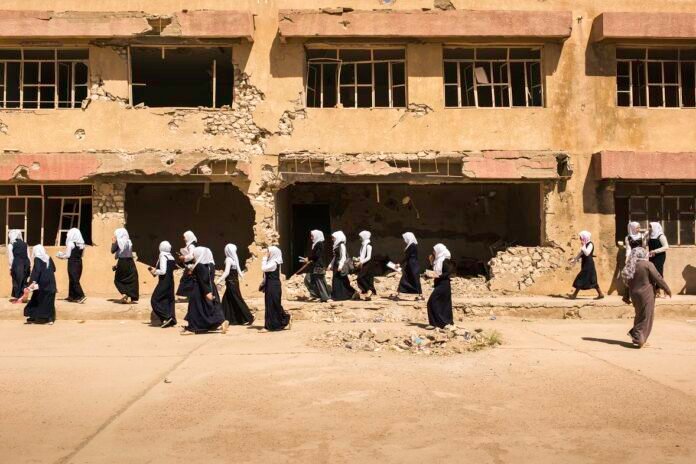The Importance of Education in Conflict Zones
Education serves as a cornerstone for development, particularly in conflict-affected regions where it plays a vital role in the lives of children and their communities. In circumstances where violence and instability prevail, education provides a semblance of normalcy, functioning as a refuge from chaos and uncertainty. It is within these learning environments that children can find hope, acquire critical skills, and nurture their aspirations for a better future.
Throughout history, the right to education has been recognized as fundamental, enshrined in various international agreements and declarations. Every child, regardless of their circumstances, possesses the inherent right to learn and develop. Unfortunately, the prevalence of conflict often disrupts this right, leaving millions of children without access to quality education. The consequences of this deprivation are dire, perpetuating cycles of poverty, instability, and social disintegration.
In addition to its immediate benefits, education serves as a crucial tool for community resilience in conflict zones. Through educational programs, individuals can gain knowledge that empowers them to contribute positively to their societies. This not only aids in rebuilding and fostering peace but also paves the way for societal reconstruction after conflicts subside. Providing a safe space for learning amid turmoil is essential in mitigating the psychological effects of violence on children, helping them to process their experiences and build emotional resilience.
Thus, promoting education in conflict areas is not merely an act of compassion; it is a strategic investment in the future of communities. As global citizens, it is our responsibility to champion educational initiatives that ensure every child has access to learning opportunities, thereby fostering a generation equipped to lead their communities towards stability and prosperity.
The Alarming Rise of Attacks on Schools
In recent years, there has been a disturbing increase in violence directed towards educational institutions, highlighting a growing threat to safe learning environments for students and educators. Recent data indicates a significant 44 percent spike in attacks on schools, raising urgent concerns about the implications of such violence. These statistics demonstrate that schools, which are meant to be sanctuaries for knowledge and growth, are increasingly becoming targets for aggression and turmoil.
The impact of these attacks extends far beyond the immediate physical danger posed to students and teachers. When violence infiltrates educational settings, it can engender an atmosphere of fear, in which students are reluctant to attend school and educators are hesitant to perform their duties effectively. This pervasive climate of insecurity may lead to diminished academic performance and long-term psychological effects on those directly affected. Consequently, as educational disruptions occur, the future prospects of entire communities are jeopardized, undermining efforts to cultivate knowledgeable and skilled citizens.
Moreover, the rise in attacks on schools can have wider societal repercussions. Communities that experience violence in their educational institutions may face a breakdown in social cohesion, as fear and distrust become rampant among residents. This can hinder community engagement and participation in essential programs aimed at fostering educational success. As the ripple effect of violence extends into neighborhoods, the broader implications can result in increased instability within regions already struggling with economic and social challenges.
Addressing this alarming trend necessitates urgent action from governments, educational leaders, and communities alike. It is essential to prioritize the protection of schools and create environments where students and teachers can thrive free from the threat of violence. By investing in safety measures and supportive mental health resources, we can work together to combat this troubling rise and protect education as a fundamental right for all.
The United Nations’ Role and Initiatives
The United Nations (UN) has been instrumental in promoting and protecting education, particularly in regions affected by conflict. Recognizing education as a fundamental human right, the UN advocates for initiatives aimed at safeguarding schools and maintaining access to education in dangerous situations. A key component of this effort is the Safe Schools Declaration, a political commitment by governments to protect education during armed conflict. By endorsing this declaration, nations pledges to ensure that schools are safe spaces for children, minimizing the risk of attacks and military use of educational facilities.
In addition to promoting the Safe Schools Declaration, the UN emphasizes multi-stakeholder partnerships to enhance the protection of education. Collaborating with various non-governmental organizations, national governments, and local communities, these partnerships aim to develop comprehensive strategies tailored to the specific challenges faced in different contexts. For instance, initiatives like the Education Cannot Wait fund focus on providing urgent funding and support for education in crisis-affected areas, ensuring that children continue to learn despite the surrounding turmoil.
Moreover, the UN is actively engaged in holding violators of international law accountable for attacks on educational institutions. Through mechanisms such as the Action for Peacekeeping initiative, the UN strives to enhance the effectiveness of peacekeeping operations in protecting schools and other educational resources. Investigations and reporting on violations are crucial components of these efforts, aimed at fostering an environment where educational rights are respected and upheld. The ongoing commitment of the UN to protect education, especially in conflict-affected regions, remains paramount as it works tirelessly to ensure that the future of countless children is not compromised by violence or instability.
A Collective Responsibility: What Can Be Done
Education is undeniably a fundamental human right and serves as a cornerstone for development and progress in any society. However, ensuring access to education, particularly in regions facing conflict and instability, is a collective responsibility that transcends borders. Nations, communities, and individuals must band together to protect the right to education and respond to the alarming incidents of violence against educational institutions.
Investing in robust education systems is essential for safeguarding this right. Governments and policymakers are called upon to prioritize educational funding in their national budgets. This includes not only infrastructure development but also training for educators and ensuring the availability of necessary teaching materials. By bolstering educational frameworks, countries can create an environment that is impervious to violence and conducive to learning.
Supporting the Safe Schools Declaration is another crucial step that communities and nations can take. This international political commitment aims to protect students, teachers, and educational institutions from attack during armed conflict. By endorsing this declaration, nations express their dedication to uphold the sanctity of learning environments and to implement measures that deter violence and promote safety. Furthermore, it acts as a catalyst for dialogue amongst nations, leading to collaborative efforts in safeguarding education.
Fostering a culture that respects education as a priority is equally important. Individuals can contribute by advocating for educational rights within their communities and by engaging in programs aimed at raising awareness about the significance of education. Collaboration among various stakeholders, including governments, non-governmental organizations, and civil society, is paramount to combatting violence in educational settings effectively.
In conclusion, protecting the right to education is a shared duty that demands immediate action from all sectors of society. Ensuring that educational institutions remain safe sanctuaries for learning will not only empower future generations but also foster peace and development on a global scale.


